Filter by:
News
Stay informed of all the latest Deltares developments in the field of water and subsurface.
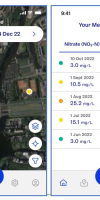
IBM and Deltares refresh the Deltares Aquality App (former Nitrate App)
In 2022, IBM selected Deltares for their Sustainability Accelerator, a corporate social responsibility program in which IBM works on worldwide sustainability. In this program, we are now working together on a major update of the award-winning Nitrate App. The focus is on optimizing the user experience to get more users to start and continue measuring water quality.
Dirk-Jan Walstra appointed to Board of Directors
Dirk-Jan Walstra has been appointed to the Deltares Board of Directors in succession to Erik Janse and Ron Thiemann. He will take up his appointment from 1 February 2023. Erik Janse will retire in March. Ron Thiemann, who - just as Erik - has been a director at Deltares since its inception, will retire in June. Following Ron Thiemann's departure, the Deltares Board of Directors will consist of two members: Dirk-Jan Walstra and Annemieke Nijhof.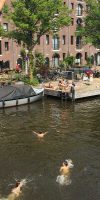
Will urban water be ready for multiple uses by 2040?
A new instrument has been developed to provide an answer to this question. On 17 January, Suzanne van der Meulen will receive her doctorate at Wageningen University for her thesis ‘Functional quality of urban surface water’. This thesis describes a new framework for the assessment of the functional quality of urban surface water.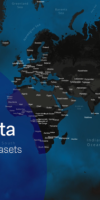
Global water data now easily accessible on the BlueEarth Data platform
Water-related hazards – like flooding, drought, pollution and other related issues – are a serious global risk, causing loss of life and damage to property, livelihoods, human health and economies. Economic growth, urbanisation and climate change will exacerbate the risks at many locations in the world. For example, flood risks are often underestimated and poorly managed due to the lack of data, particularly in less-developed regions. In addition, preparing for future coastal erosion and flooding requires data on several hazards, examples being erosion, waves, and extreme events. Until now, these datasets have not been readily available in a single environment.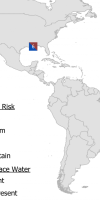
Sustainability of fresh groundwater resources in fifteen major deltas around the world
Deltas are often densely populated areas with intensive agriculture. These areas increasingly rely on groundwater extraction to provide drinking water, to supply water for industry, and to irrigate crops, with groundwater salinisation and depletion as a result. Groundwater salinisation is further exacerbated by sea level rise. Knowledge about the present volumes of these resources, which is needed for sustainable water management, is limited.
Climate adaptation and mitigation can, and must, reinforce each other as much as possible
Where should we be building now we are looking climate change in the face? Should we be investing in energy-intensive industries in low-lying areas of the Netherlands? How can cities be climate-resilient as they grow? Given the urgent challenge of climate mitigation, which has to accelerate in parallel with climate adaptation, policymakers and other decision-makers often find it difficult to do justice to the two policy areas (and others). Climate mitigation and adaptation are separate worlds, in terms of both policy and science. A paper commissioned by the Delta Programme was published today by Deltares and Eindhoven University of Technology. It explains how and why the two worlds can be more connected.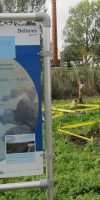
Important next step in application of olivine
Olivine is an abundant mineral that is often described as a solution for capturing CO2. But how much of it should you use, is it safe and what is the effect on CO2 levels? The first expert model we established for this purpose has been validated and worked up in field trials. The relevant report has just been published.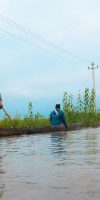
New geohazard tool allows emergency responders to reach disaster areas more quickly and efficiently
Every year, 108 million people fall victim to disasters arising due to extreme weather events. That is more than 6 times the total population of the Netherlands each year. Climate-related disasters include storms, floods, and extreme drought. Humanitarian emergency responders mobilise immediately after a disaster to provide necessary assistance to those affected in the disaster area as soon as possible. Due to the lack of up-to-date information, it is still not always possible to reach a disaster area quickly and efficiently.
Good and healthy groundwater, now and in the future
In densely populated areas such as the Netherlands, more and more claims are being made on the subsurface. They involve drinking water supplies, housing, the energy transition, nitrogen emissions, sustainable agriculture and the protection of nature areas. The groundwater system and the ecosystems that depend on it are under increasing pressure as a result, and climate change is amplifying that pressure. In addition, two-thirds of the drinking water in the Netherlands is currently produced from groundwater.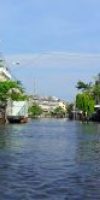
Adopting a resilience lens in flood risk management
An interdisciplinary group of experts from Deltares, other research institutes and universities argues in a new paper that extra elements must be added to flood risk management in order to make better decisions and develop strategies which enhance resilience and equity. Their view was published on 18 November 2022 in Nature Communications Earth & Environment.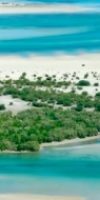
PhD thesis: Towards global-scale compound flood risk modeling
Coastal deltas are prone to flooding due to their low elevation and dense population. Flooding in these areas can occur from several causes, including pluvial, fluvial, and coastal drivers. However, floods can also occur or be exacerbated from interactions between these drivers, which by itself do not have to be extreme. If these drivers are statistically dependent, their joint likelihood might be misrepresented if dependence is not accounted for. Dirk Eilander's (flood expert Deltares) doctoral research tomorrow morning at VU in Amsterdam, on coexistence in deltas, helps to better understand flood risks on a global scale.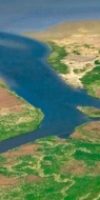
Champions Group for Deltas & Coastal Areas launched at COP27
Today, the Dutch ‘Champions Group for Deltas and Coastal Areas’ initiative was launched at COP27 in Egypt. The Champions are a group of countries facing huge challenges due to climate change, resulting in the need for large climate adaptation investments. Countries who are part of the Champions Group have agreed to share their knowledge and experience, allowing them to better and more quickly adapt to the changing climate. The Champions Group is one of the pillars of the International Panel on Deltas and Coastal Areas (IPDC), which will be officially launched during the UN 2023 Water Conference. As chair of the IPDC secretariat, Deltares will play a crucial role.
